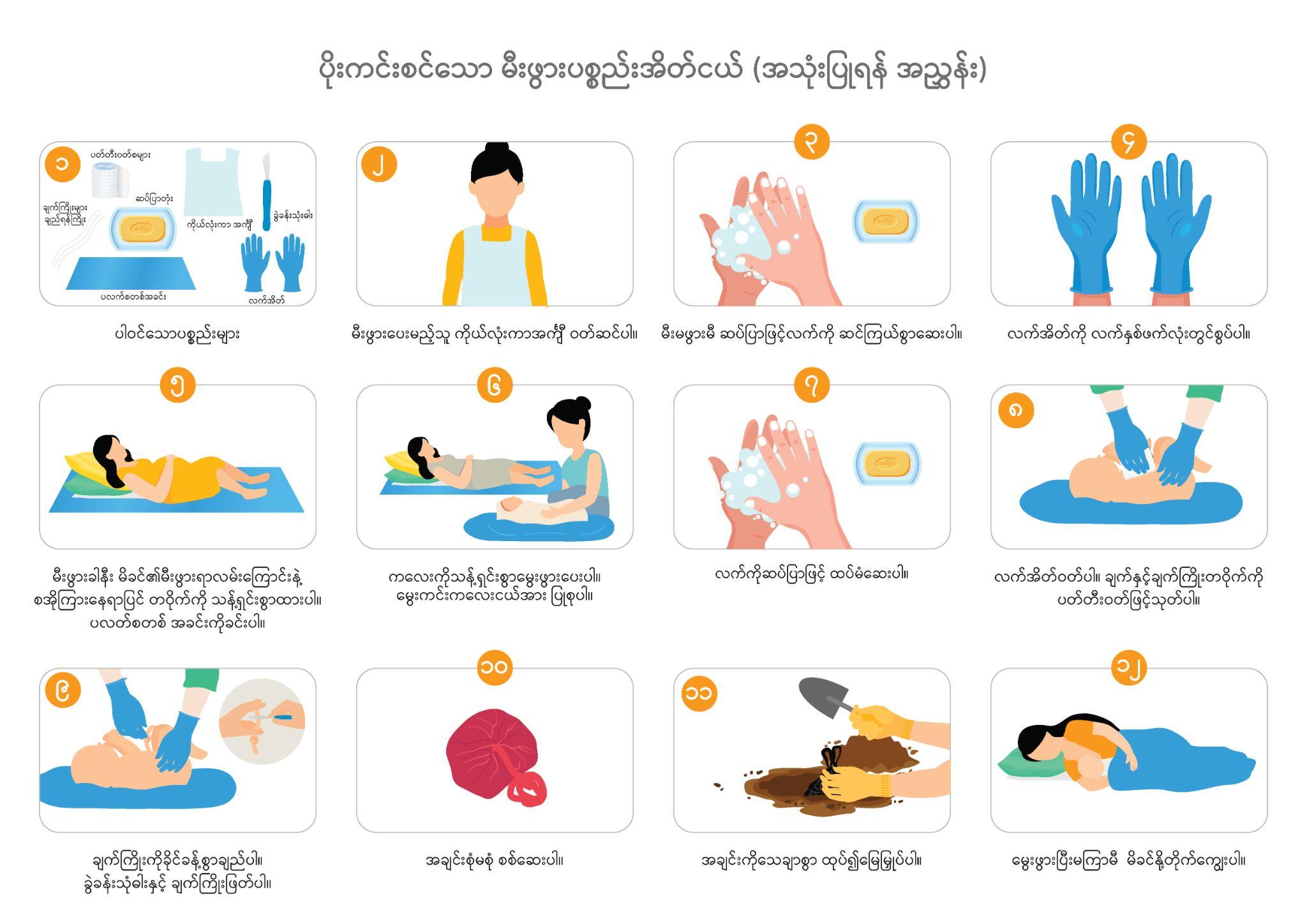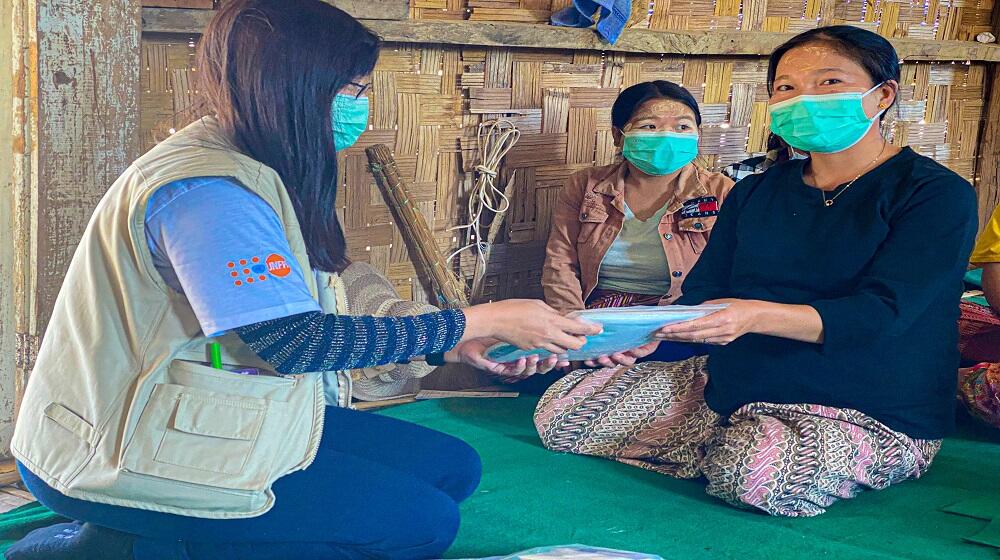There is a saying that goes: It takes a village to raise a child. It also takes community support and access to information and supplies to safely birth that child including during times of crisis. According to the 2022 Myanmar Humanitarian Response plan, there are an estimated 14.4 million people in need of humanitarian assistance. Among them, UNFPA Myanmar estimates that among them, there are about 3.7 million women in reproductive age (15-49). Of those women and girls, 250,000 are expected to be pregnant or giving birth in 2022. Due to the ongoing crisis in Myanmar, pregnant women are facing increased barriers to access sexual and reproductive health services, including skilled child delivery assistance, across Myanmar. Even before the current emergency, the maternal mortality rate (MMR) in Myanmar was the highest in Southeast Asia and infection or sepsis is one of the leading causes of maternal death both in Myanmar and globally.
As a response to the security, access, financial and other challenges for emergency-affected women in Myanmar to deliver at health facilities, UNFPA has significantly ramped up the distribution of individual clean delivery kits in 2022. The clean delivery kit, or CDK, can help to mitigate the risks of infection by providing supplies to create a safe and clean setting for delivery. UNFPA provides guidance for the distribution of CDK to ensure that distribution is accompanied by information related to the importance of seeking health services, including antenatal care, and encourages families and communities to consider birth planning so that they are prepared when it’s time for birth. It should be noted that while a CDK can help to prevent infection, women should always be encouraged and supported to deliver at health facilities and in fact, women are encouraged to take their CDKs to the facilities at the time of delivery.

Figure 2: Instruction sheet included with each clean delivery kit
"This (CDK) will be very helpful and supportive for my delivery. I am displaced from my home and don’t know where I will be able to give birth. " -31 years old pregnant IDP from Kayah State displaced in Hsihseng Township, Southern Shan
UNFPA is coordinating closely with partners and with UNICEF to ensure wide distribution of CDK to pregnant women from communities affected by the prevailing humanitarian situation in Myanmar. The provision of CDK is made possible by donors to the Women and Girls First Programme along with bilateral support from Australia, Canada, Japan and the Central Emergency Response Fund (CERF).
On World Humanitarian Day, UNFPA Myanmar pays tribute to the dedication and commitment of community volunteers and local humanitarian workers who are the first responders in the community to ease suffering of affected population and particularly to ensure continuity of sexual and reproductive health services for the most vulnerable women and girls in humanitarian affected areas.
"I have no idea where I will be at the time of delivery due to this very unstable current situation and issues to access services. I feel happy and safe when I think about my delivery. I will keep this CDK safely until my due date." - 27 years pregnant woman displaced from Kayah State



